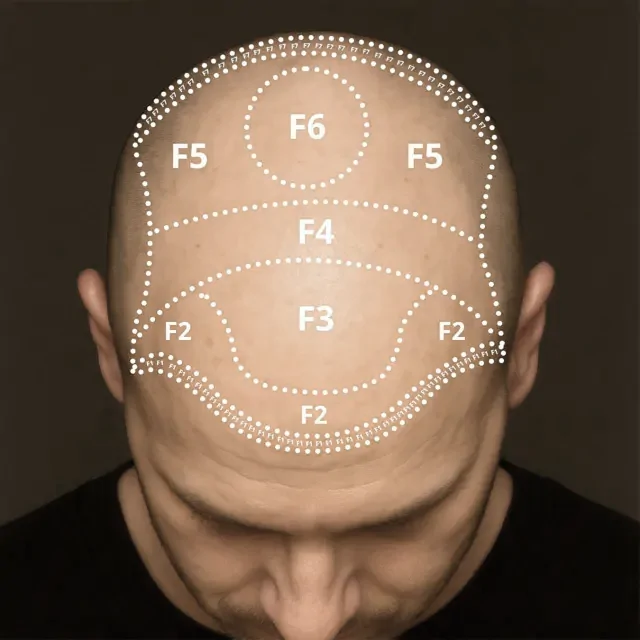Before undergoing a hair transplant, it is essential to consult with a qualified and experienced surgeon who specializes in this field. This ensures that the procedure is performed safely and effectively. It is equally important to understand the potential risks, recovery process, and realistic outcomes of hair transplantation. Knowing these details allows patients to make informed decisions and prepare both physically and mentally for the operation.
At Quartz Hair Clinic in Istanbul, every patient undergoes a thorough evaluation by our medical team, ensuring personalized and safe treatment tailored to their needs.
Medical Evaluation and Pre-Procedure Tests
Patients must inform their physician about any medications they take for chronic or acute conditions such as diabetes, hypertension, or heart disease.
It is also common for doctors to request blood tests and an EKG (electrocardiogram) before the hair transplant.
These tests are performed to evaluate general health and ensure the patient is medically fit for the procedure.
| Pre-Procedure Test | Purpose | Why It’s Important |
|---|---|---|
| Blood Test | Evaluates general health, detects infections or anemia | Helps reduce surgical risks |
| EKG (Electrocardiogram) | Measures heart rhythm and electrical activity | Ensures cardiac safety during anesthesia |
| Blood Pressure Check | Detects hypertension or hypotension | Important for surgical stability |
| Medication Review | Assesses drugs affecting bleeding or healing | Prevents complications during or after the procedure |
Two Weeks Before Hair Transplant: Essential Preparations
Approximately two weeks before your procedure, you should start preparing your body and following your doctor’s specific instructions to achieve the best results.
1. Consultation and Planning
Discuss every aspect of your surgery with your doctor — including technique (DHI, FUE, or Sapphire FUE), graft number, and aftercare expectations.
A detailed consultation allows realistic planning and ensures the doctor understands your hair goals.
2. Stop Certain Medications
Some medications, such as blood thinners or anti-inflammatory drugs, may need to be discontinued to reduce bleeding risks.
Always follow your doctor’s advice and disclose all drugs you are taking.
3. Avoid Alcohol and Smoking
Both alcohol and tobacco affect blood circulation and healing capacity. It is strongly advised to avoid them for at least two weeks before the operation.
4. Maintain a Healthy Lifestyle
Eat nutritious meals, stay hydrated, and engage in light exercise to boost circulation.
Good preoperative health directly improves post-surgery recovery and graft survival.
What to Eat Before Hair Transplant Surgery
Your diet plays an important role in preparing your body for the operation.
Focus on foods rich in protein, vitamins, and antioxidants to enhance healing.
| Food Type | Examples | Benefit |
|---|---|---|
| Lean Proteins | Chicken, fish, turkey, tofu | Promotes tissue repair and graft survival |
| Leafy Greens | Spinach, kale, broccoli | Strengthens the immune system |
| Berries | Blueberries, raspberries, strawberries | Reduces inflammation, rich in antioxidants |
| Whole Grains | Oats, quinoa, brown rice | Supports digestion and energy |
| Water | 2–3 liters per day | Keeps the body hydrated and aids recovery |
Tip: Avoid excessive caffeine and sugary drinks. Hydration and balanced nutrition are vital for optimal healing.
Can I Smoke Before a Hair Transplant?
Smoking reduces oxygen delivery to tissues, delays wound healing, and can decrease graft survival.
For the best results, it’s recommended to quit smoking at least two weeks before surgery and to avoid it completely for a few weeks after the transplant.
At Quartz Hair Clinic, patients are guided step-by-step to ensure the body is in ideal condition for both surgery and recovery.

Can I Drink Alcohol Before a Hair Transplant?
Alcohol consumption is also discouraged before the procedure.
Alcohol thins the blood, increasing the risk of bleeding and swelling. It also interferes with anesthesia and healing.
Avoid all alcoholic beverages for at least 24–48 hours before surgery, ideally a full week.
Who Is Not Suitable for Hair Transplant?
Not every patient is an ideal candidate for hair transplantation.
The following factors can make a person unsuitable for surgery:
| Unsuitability Factor | Explanation |
|---|---|
| Insufficient Donor Hair | Lack of healthy grafts in the donor area limits achievable density |
| Certain Medical Conditions | Autoimmune, blood, or chronic infectious diseases can affect safety |
| Advanced Age | Older patients may experience poor graft viability |
| Unrealistic Expectations | Expecting a completely full head of hair is not medically achievable |
| Active Scalp Diseases | Conditions like dermatitis or infection must be treated before surgery |

Can Hepatitis B Patients Undergo Hair Transplantation?
Patients with Hepatitis B should undergo a full medical evaluation before any elective surgical procedure.
If the infection is active, the procedure is usually postponed until it is controlled.
A thorough assessment, including blood work and liver function tests, is conducted to ensure safety for both the patient and the surgical team.
Preparing properly before a hair transplant significantly improves your results and safety.
By following your surgeon’s instructions, avoiding harmful habits, and maintaining a healthy lifestyle, you maximize graft survival and achieve natural, long-lasting results.
At Quartz Hair Clinic in Istanbul, we provide a comprehensive pre-operative assessment, advanced surgical techniques, and ongoing aftercare to ensure the best outcome for each international patient.

